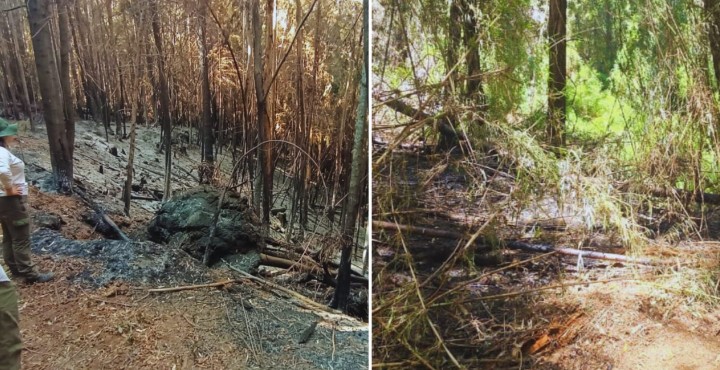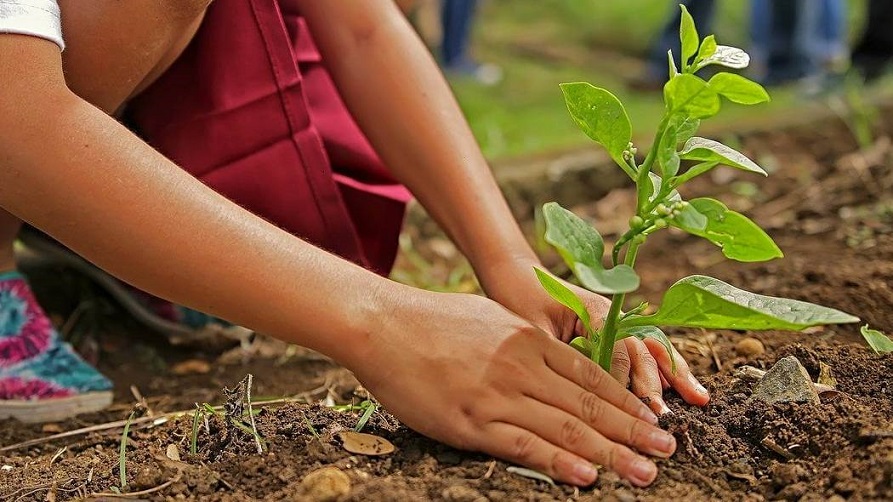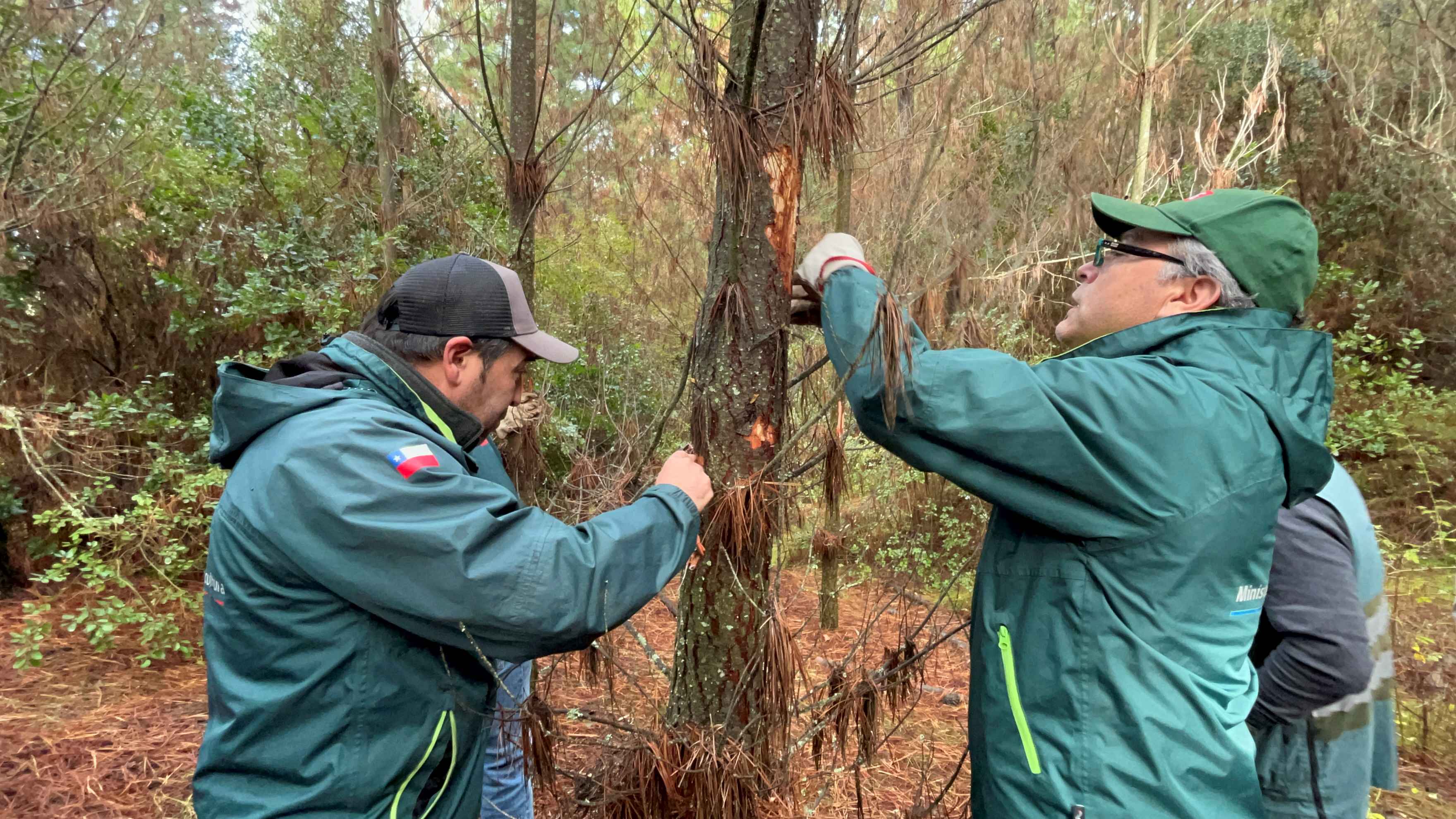This Thursday, December 5, marks National Soil Day, which highlights the importance of protecting soil and the surrounding ecosystems. To this end, the Forest Stewardship Council (FSC) works toward the responsible and sustainable management of forests, ensuring forest products come from certified sources, among other initiatives.
On National Soil Day, Regina Massai, Executive Director of FSC Chile, emphasized the importance of FSC certifications for both national and international companies and issued a special call to action: "It is essential that we all become aware of the importance of caring for our soils, forests, and ecosystems. By choosing FSC-certified products, we not only ensure the well-being of forests and biodiversity but also contribute to a more sustainable and responsible future."
FSC: Leadership in Responsible Forest Management
The Forest Stewardship Council (FSC®) is an international nonprofit organization founded in 1994 that seeks to promote sustainable forest management worldwide through environmentally appropriate, socially beneficial, and economically viable practices. In Chile, FSC has been working for over 20 years to adapt these standards to the national reality, positively impacting natural resource conservation and the strengthening of local communities.
On National Soil Day, Regina Massai, Executive Director of FSC Chile, emphasized the importance of FSC certifications for both national and international companies and issued a special call to action: "It is essential that we all become aware of the importance of caring for our soils, forests, and ecosystems. By choosing FSC-certified products, we not only ensure the well-being of forests and biodiversity but also contribute to a more sustainable and responsible future."
Its work is primarily highlighted through globally recognized FSC certifications, which in Chile validate over 2.3 million hectares of forests under its international standards. According to FSC, the label guarantees that certified products come from sustainably managed forests and are tracked throughout their entire supply chain, from natural forests to the final product.
Massai states that the FSC label is more than just a logo—it is a commitment to sustainability and forest and soil protection. "It sends a clear message to consumers: what they buy has a positive impact on the environment and people." Similarly, she highlights the role of consumers in the sustainability of these companies and, consequently, the industry. "When a consumer chooses FSC-certified products, they generate a positive impact on forest, community, and biodiversity conservation. At the same time, by demanding certified products, they encourage more companies to adopt sustainable standards and drive the growth of sustainable forest management."
FSC Chile
The national context, marked by persistent wildfires and pressure on ecosystems, underscores the urgent need to adopt responsible forestry practices. In this regard, FSC acknowledges significant challenges, particularly in managing native forests, which require a comprehensive approach that considers environmental sustainability as well as the economic and social needs of landowners and businesses.
According to Massai, one of the country's main challenges is incorporating native forests into sustainable forest management. "While we have made progress in certifying forest plantations, managing native forests remains a major challenge. That is why we are working jointly with small landowners and authorities to create the necessary conditions for their inclusion in sustainable practices."
In Chile's context, characterized by water scarcity, wildfires, and the need for carbon capture, Massai highlights three types of certifications that most help mitigate climate change effects: (a) FSC Forest Management, a relevant certification for mitigating fires, conserving water resources, and restoring ecosystems, enabling companies to adapt their operations to climate challenges and contribute to carbon neutrality while strengthening community relations. (b) FSC Chain of Custody, ensuring traceability from forest to consumer, key for exporting to international markets that require it. (c) FSC Ecosystem Services, which verifies impact and allows claims in five forest ecosystem services: carbon capture, biodiversity conservation, water and soil protection, and recreation, aligning with climate priorities.
FSC and Its Role in Ecosystem Restoration
A key aspect of FSC's work is its contribution to the restoration of forest ecosystems. Massai reiterates that forests not only provide products like timber but also play a fundamental role in soil protection, water conservation, and carbon capture. For this reason, FSC Chile has implemented specific criteria that promote soil regeneration, firebreak creation, and other measures to prevent fire spread. "Restoring fire-affected soils is one of our priorities. Through partnerships with the public and private sectors, we are working on forest rehabilitation—not just physically but also in their capacity to provide essential ecosystem services for life."
Chile's wildfire crisis, particularly in the central-south zone, has shown that forest prevention and restoration are urgent tasks. FSC has developed a series of indicators in its standards to help mitigate fire risks and restore fire-affected ecosystems. Implementing firebreaks, careful forest planning, and ecosystem restoration are key measures FSC promotes among its certified companies.
FSC Certification Beyond the Forestry Sector
However, the impact of FSC certification extends beyond the forestry industry. Massai states that companies in other sectors have also adopted its standards to ensure that forest-derived products they use, such as paper and wood, come from sustainable sources, differentiating themselves in a world increasingly demanding global commitment. "For companies in other sectors, integrating FSC certifications not only demonstrates leadership in sustainability but also strengthens stakeholder trust, enhances brand perception, and opens doors to more conscious markets."
Along the same lines, Massai affirms, "The FSC label is a powerful tool for companies seeking to align with the demands of responsible consumers, not just in the forestry industry but in many other sectors. Today more than ever, companies need to demonstrate their commitment to sustainability and environmental protection."
Source:La Tercera







Comments (0)
No comments yet. Be the first to comment!
Leave a comment